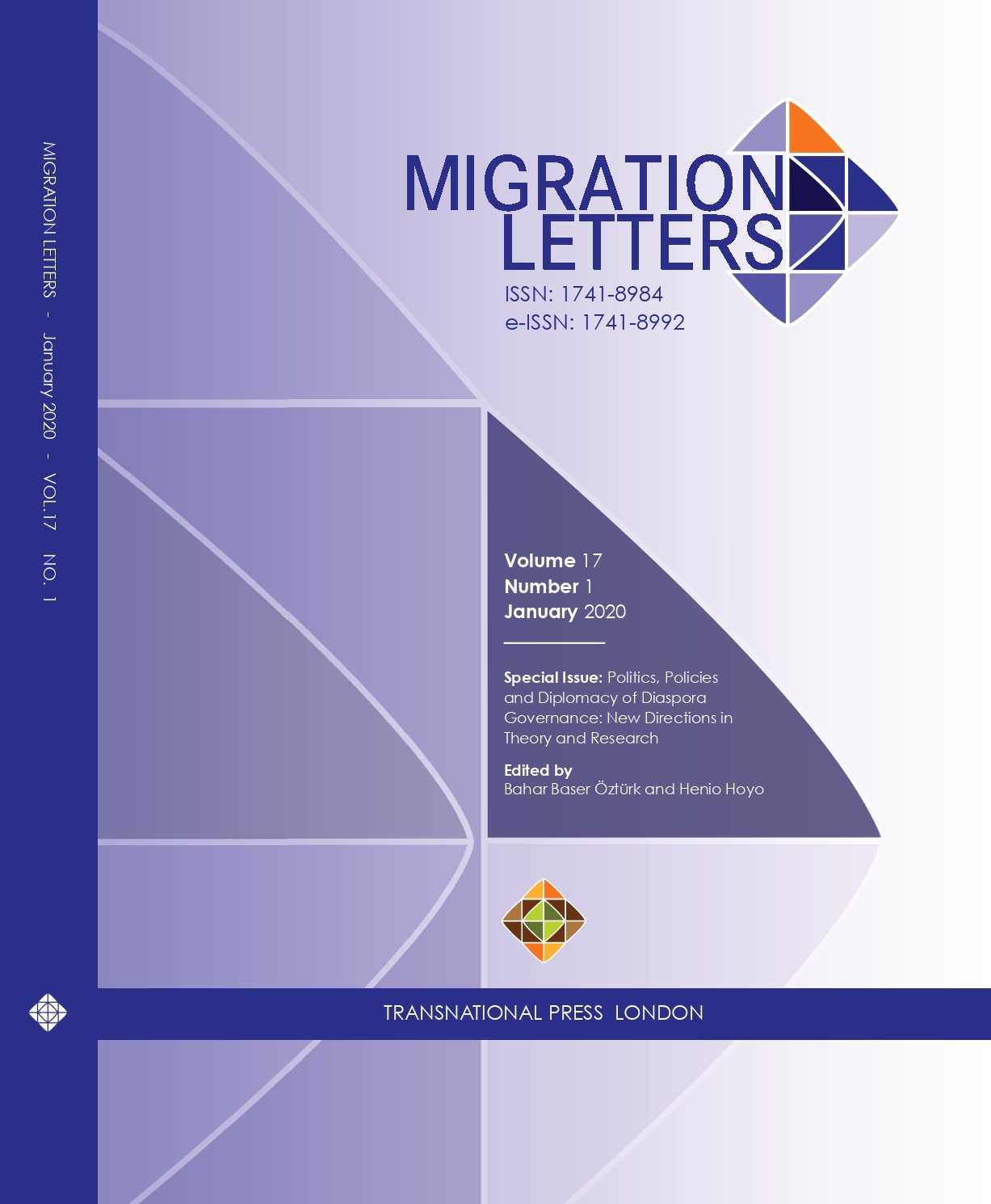Mexican-U.S. Asymmetrical Diaspora Policies in the Age of Return Migration
Mexican-U.S. Asymmetrical Diaspora Policies in the Age of Return Migration
Author(s): Pablo MateosSubject(s): Recent History (1900 till today), Government/Political systems, International relations/trade, Migration Studies, Politics and Identity
Published by: Transnational Press London
Keywords: migration; citizenship; return migration; diaspora policy; Mexico; identity documents; Mexican migrants;
Summary/Abstract: A major shift in Mexican policy towards its emigrants took place in the mid-1990s, ending a view of emigrants as “traitors to the nation” and from then on considered “national heroes”, as an attempt to embrace them into the nation. Since 2007 over 2 million Mexicans have returned to Mexico facing stark discrimination from Mexican institutions that were never designed to integrate foreigners or newcomers, but quite the opposite, to exclude undocumented populations. This creates the contradiction that Mexicans abroad may have access to more rights provided by the Mexican government than if they move back home. This paper attempts to understand these exclusionary practices and points to new diaspora policies, which should cater for a massive population moving between the two countries or settling in Mexico. It also calls for “symmetrical” diaspora policies that provide rights granted by home governments that are also valid within its territorial jurisdiction, not just abroad.
Journal: Migration Letters
- Issue Year: 17/2020
- Issue No: 1
- Page Range: 147-153
- Page Count: 7
- Language: English

